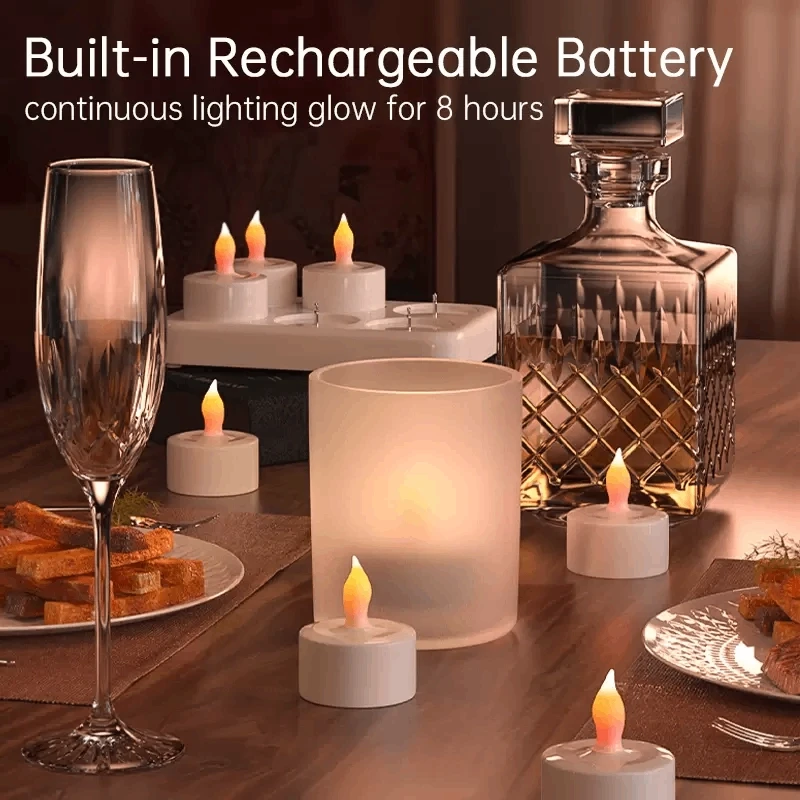- This topic is empty.
-
AuthorPosts
-
2024-07-05 at 9:23 am #81006
With the continuous advancement of science and technology, people's demand for lighting products is also increasing. Although traditional candle lamps have a unique charm, their energy consumption is high, which not only wastes energy, but also causes certain pollution to the environment. In order to solve this problem, scientists have developed LED candle lamps, which not only have the beauty of traditional candle lamps, but also have the characteristics of energy saving and environmental protection. This article will discuss the energy consumption of LED candle lights.
First of all, we need to understand the basic knowledge of LED technology. LED, or light-emitting diode, is a solid-state semiconductor device that can directly convert electrical energy into light energy. Compared with traditional lighting methods such as incandescent lamps and fluorescent lamps, LED technology has an essential advantage in conversion efficiency. Incandescent lamps only convert about 5% of their energy into light energy, and the remaining 95% is lost in the form of heat, while the conversion efficiency of LED lamps can be as high as 30%-50%, most of the energy is used for light emission, and heat loss is small.

Specifically for LED candle lamps, their energy consumption advantage is even more obvious. An ordinary small LED candle lights usually has a power between 0.2 watts and 2 watts, which is much lower than the 4 watts or higher of traditional candle-type bulbs. This means that under the condition of the same brightness, the energy consumption of LED candle lamps is only a fraction of that of traditional candle-type bulbs.
To understand this difference more intuitively, let's use a hypothetical example to illustrate: if there are 10 locations in a home that use traditional candle-type bulbs, each with a power of 4 watts and working for 5 hours a day, then the total energy consumption for a day is 4 watts × 10 × 5 hours = 200 watt-hours. If all are replaced with LED candle lamps with a power of 1 watt, the total energy consumption drops to 1 watt × 10 × 5 hours = 50 watt-hours. In this way, this item alone has achieved a 75% reduction in energy consumption.
Of course, the reduction in energy consumption is not only reflected in the savings in household electricity bills, but more importantly, the impact on the environment is greatly reduced. The production of electricity still relies heavily on fossil fuels, and reducing electricity consumption is equivalent to indirectly reducing the emission of greenhouse gases such as carbon dioxide. In other words, the popularization of LED candle lamps is a simple and effective step to promote ecological sustainability.
In addition to DC power consumption, the service life of LED candle lights is also an important factor affecting energy consumption. The average lifespan of a good quality LED candle lights can reach tens of thousands of hours, far exceeding that of traditional incandescent and fluorescent lamps. This means that users need to replace LED candle lamps less frequently throughout their service life, thereby reducing the energy consumption and environmental burden of manufacturing and transporting new bulbs.
However, despite the obvious advantages of LED candle lights in terms of energy consumption, we should also pay attention to some details behind them. For example, although the conversion efficiency of LED lamps is high, the efficiency of LED candle lamps of different qualities also varies. Low-quality LED candle lamps on the market may use inefficient LED components and drive circuits, resulting in actual energy saving effects that are not as expected. Therefore, when choosing LED candle lights, consumers should pay attention to their luminous efficacy (luminous flux generated per unit energy consumption) and nominal lifespan, and choose products with high cost performance.
In addition, the light source efficiency and color rendering index (CRI) of LED candle lamps are also factors that need to be considered when purchasing. LED candle lamps with high CRI can provide more natural and comfortable light, while lights with low CRI may cause visual discomfort and affect the comfort of the home environment.
In general, the energy consumption of LED candle lamps is significantly lower than that of traditional lighting products. Its low power and long life make it an energy-saving and environmentally friendly lighting option. At the same time, LED candle lights also have other advantages, such as dimming function and good luminous effect. Therefore, LED candle lights are more and more widely used in homes, businesses and public places. In the future, with the continuous development of LED technology, the energy consumption of LED candle lights will be further reduced, providing people with more energy-saving and environmentally friendly lighting solutions.
As a LED candle light wholesaler, we are committed to providing customers with high-quality and reliable products. We have a wide range of product lines, including LED candle lights of various sizes, shapes and colors to meet the needs of different customers.
https://www.junemfg.com/
Wuxi Chang Ou Photoelectric Technology Co., Ltd -
AuthorPosts
- You must be logged in to reply to this topic.


